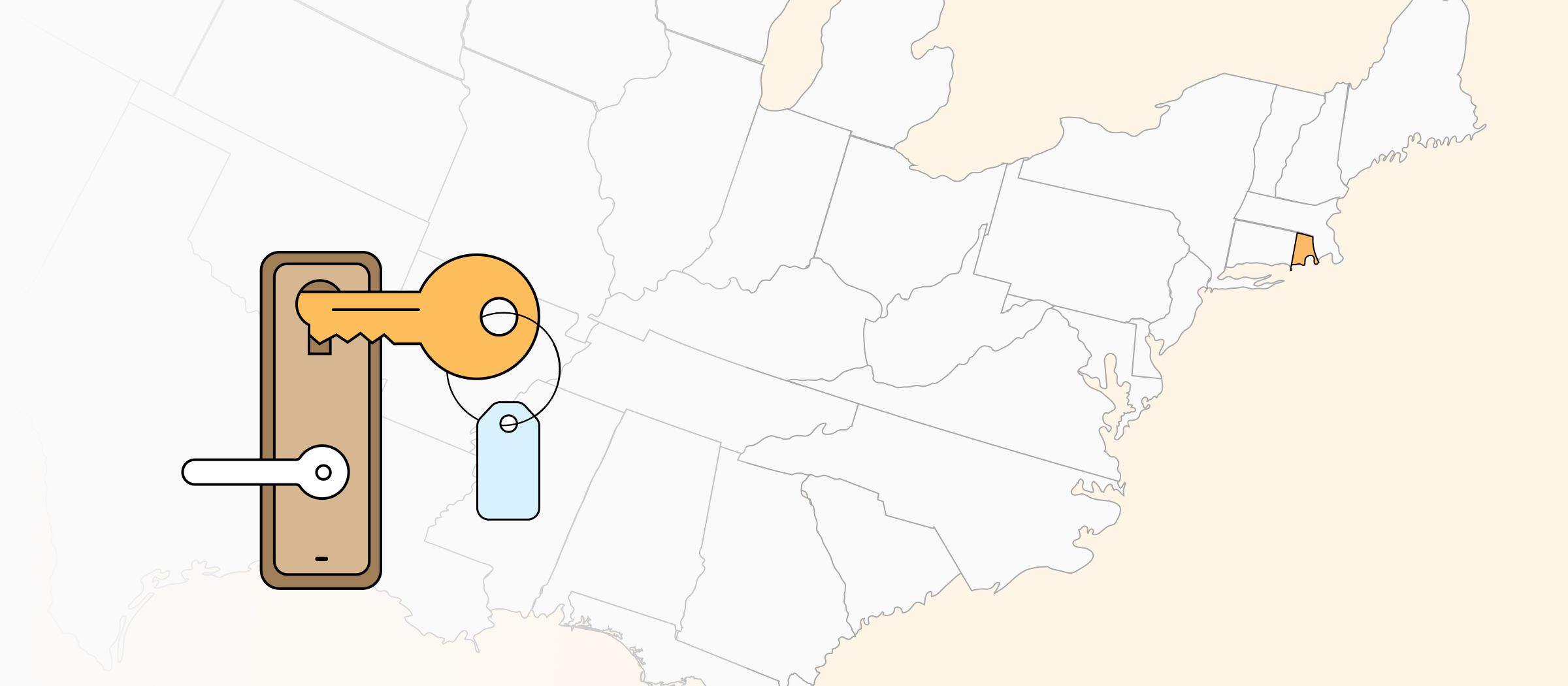| Legal Reasons for Entry |
|
|---|---|
| Notice Requirement |
|
| Penalties for Illegal Entry |
|
Does a Landlord Have the Right To Enter a Rental Property in Rhode Island?
Rhode Island landlords have a right to enter a rental property for the following reasons:
- Inspecting the property.
- Improvements.
- Maintenance and repairs.
- Showing the property to potential renters and buyers.
- Emergencies.
Can a Landlord Enter Without Permission in Rhode Island?
Rhode Island landlords can legally enter a rental property without permission for the following reasons:
- There’s an emergency.
- The property needs protection.
- The renter has been gone for more than a week.
- The renter got a written notice more than 20 days ago about a necessary change to the property.
Can a Landlord Enter Without the Tenant Present in Rhode Island?
Rhode Island landlords can legally enter a rental property without the tenant present.
Can a Landlord Show a House While Occupied in Rhode Island?
Rhode Island landlords can show an occupied house. The renter can’t unreasonably refuse, as long as the landlord provides two days of advance notice and shows the property at a reasonable time of day.
How Often Can Landlords Conduct Routine Inspections in Rhode Island?
Rhode Island landlords have no specific limit on how often they can enter for inspections. The landlord isn’t allowed to enter unreasonably often, but what’s reasonable is decided case by case.
How Much Notice Does a Landlord Need To Provide in Rhode Island?
Rhode Island landlords must give at least two days of advance notice before entering, unless one of the following exceptions applies:
- The renter has been gone for more than a week.
- There’s an emergency.
- The property needs protection.
- It’s not practically possible to contact the renter (for example, the renter is away on vacation for less than a week, but hasn’t given contact information).
Can a Landlord Enter Without Notice in Rhode Island?
Rhode Island landlords can enter without notice for the following reasons:
- The renter has been gone for more than a week.
- There’s an emergency.
- The property needs protection.
- It’s not practically possible to contact the renter (for example, the renter is away on vacation for less than a week, but hasn’t given contact information).
How Can Landlords Notify Tenants of an Intention To Enter in Rhode Island?
Rhode Island landlords can notify tenants verbally or in writing about an intention to enter.
Can a Tenant Refuse Entry to a Landlord in Rhode Island?
Rhode Island tenants can refuse entry to a landlord for most reasons. If the landlord gives proper notice and enters in a reasonable time and manner, tenants cannot refuse entries that are done for the following purposes:
- Inspection.
- Making improvements to the property.
- Maintenance.
- Showing the property.
- Resolving an emergency.
What Happens If the Tenant Illegally Refuses Entry to the Landlord in Rhode Island?
Rhode Island landlords can take any of the following actions if a tenant illegally refuses entry:
- Get a court order to force access.
- Cancel the rental agreement.
- Recover court costs and attorney fees from the tenant.
Can a Tenant Change the Locks Without Permission in Rhode Island?
Rhode Island tenants can change locks without permission if the lease doesn’t say otherwise. Note that the landlord still has a right to enter for specific reasons, so it’s reasonable for tenants to provide copies of current keys.
What Can a Tenant Do If the Landlord Enters Illegally in Rhode Island?
Rhode Island tenants can take any of the following actions if the landlord enters illegally:
- Get a court order to ban the landlord from entering.
- Cancel the rental agreement.
- Recover court costs and attorney fees from the landlord.
Sources
- 1 R.I. Gen. Laws § 34-18-26 (2022)
-
“(a) A tenant shall not unreasonably withhold consent to the landlord to enter into the dwelling unit in order to inspect the premises, make necessary or agreed repairs, decorations, alterations, or improvements, supply necessary or agreed services, or exhibit the dwelling unit to prospective or actual purchasers, mortgagees, tenants, workers, or contractors.
“(b) A landlord may enter the dwelling unit without consent of the tenant in case of emergency, or, during any absence of the tenant in excess of seven (7) days, if reasonably necessary for the protection of the property.”
Source Link - 2 R.I. Gen. Laws § 34-18-39 (2022)
-
“If there is noncompliance by tenant with § 34-18-24 materially affecting health and safety that can be remedied by repair, replacement of a damaged item, or cleaning, and the tenant fails to comply as promptly as conditions require in case of emergency or within twenty (20) days after written notice by the landlord specifying the breach and requesting that the tenant remedy it within that period of time, the landlord may enter the dwelling unit and cause the work to be done in a skilled manner and submit the itemized bill for the actual and reasonable cost or the fair and reasonable value thereof as rent on the next date periodic rent is due, or if the rental agreement has terminated, for immediate payment.”
Source Link - 3 R.I. Gen. Laws § 34-18-45 (2022)
-
“(a) If the tenant refuses to allow lawful access, the landlord may obtain injunctive relief to compel access, or terminate the rental agreement.
“(b) If the landlord makes an unlawful entry or a lawful entry in an unreasonable manner or makes repeated demands for entry otherwise lawful but which have the effect of unreasonably harassing the tenant, the tenant may obtain injunctive relief to prevent the recurrence of the conduct or terminate the rental agreement.
“(c) In any action under subsection (a) or (b) the prevailing party may recover actual damages and shall be awarded costs and reasonable attorney’s fees.”
Source Link

